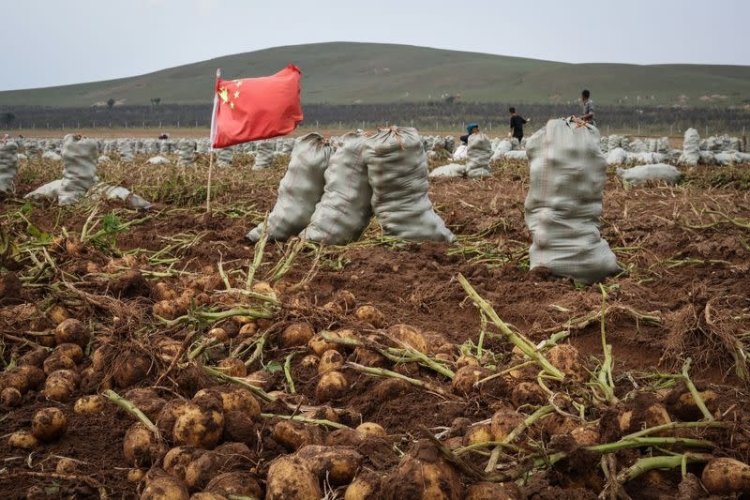Rising heat threatens global potato yields

Scientists in Beijing have discovered alarming evidence of climate change's potential impact on global food security through a groundbreaking potato study. Research led by molecular biologist Li Jieping at the International Potato Center (CIP) reveals that higher temperatures could drastically reduce potato yields, with test crops producing tubers less than half the normal size under simulated future climate conditions.
The study, published in Climate Smart Agriculture, focused on China's two most common potato varieties, showing that a 3°C temperature increase led to a more than 50% reduction in yield, despite accelerating growth by 10 days. This finding is particularly concerning as China leads global potato production, and the crop is vital for worldwide food security due to its typically high yield compared to other staples.
The research gains additional urgency in light of UN projections suggesting global temperatures could rise by 3.1°C above pre-industrial levels by 2100 under current climate policies. Chinese farmers are already experiencing challenges from extreme weather events, with heavy rainfall disrupting harvest schedules and traditional growing patterns.
In response to these challenges, adaptation efforts are underway across China. The Yakeshi Senfeng Potato Industry Company has invested in advanced aeroponic systems for soil-less cultivation, while farmers increasingly seek varieties resistant to diseases like late blight, which thrives in warmer, humid conditions.
The CIP's research, conducted in collaboration with the Chinese government, is exploring solutions including the development of heat-tolerant varieties. Li suggests that within the next decade, farmers may need to shift planting seasons to spring instead of summer or relocate to higher altitudes to maintain viable crops.
This research exemplifies China's proactive approach to addressing climate change's impact on agriculture, with authorities seeking to develop adaptation strategies before crop yields are severely affected.















